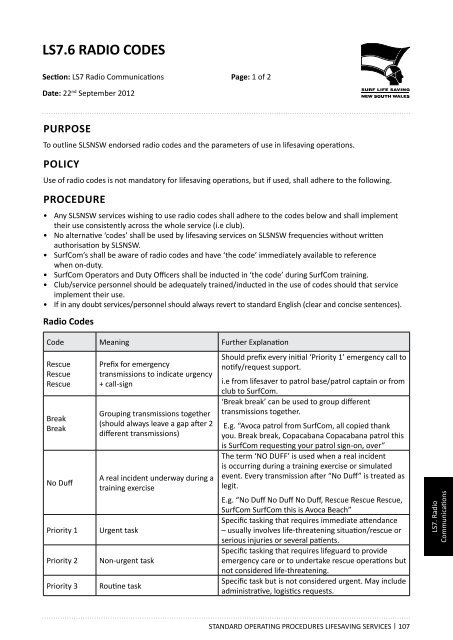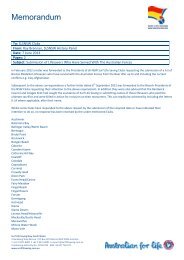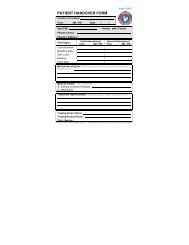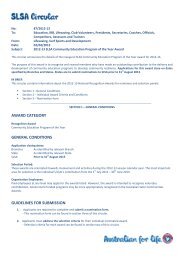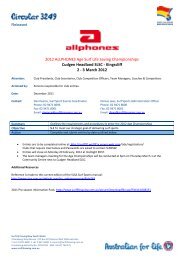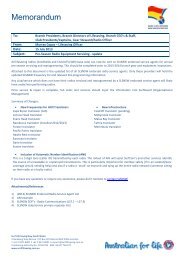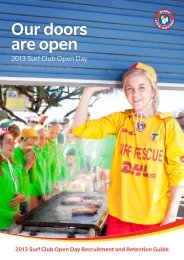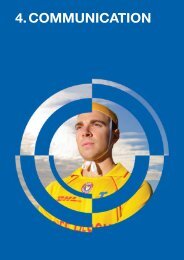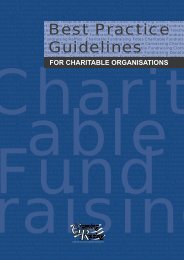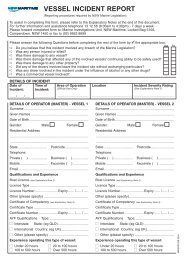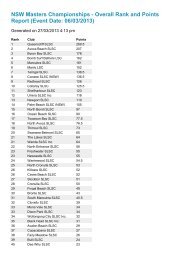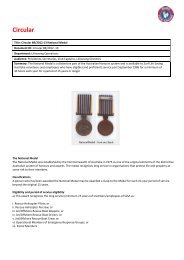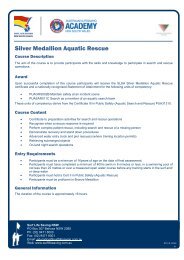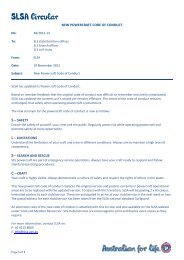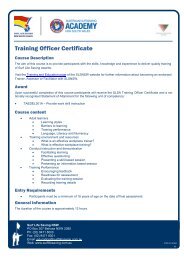LS07. Radio Communications - Surf Life Saving NSW
LS07. Radio Communications - Surf Life Saving NSW
LS07. Radio Communications - Surf Life Saving NSW
- No tags were found...
Create successful ePaper yourself
Turn your PDF publications into a flip-book with our unique Google optimized e-Paper software.
LS7.6 RADIO CODESSection: LS7 <strong>Radio</strong> <strong>Communications</strong> Page: 1 of 2Date: 22 nd September 2012PurposeTo outline SLS<strong>NSW</strong> endorsed radio codes and the parameters of use in lifesaving operations.PolicyUse of radio codes is not mandatory for lifesaving operations, but if used, shall adhere to the following.Procedure• Any SLS<strong>NSW</strong> services wishing to use radio codes shall adhere to the codes below and shall implementtheir use consistently across the whole service (i.e club).• No alternative ‘codes’ shall be used by lifesaving services on SLS<strong>NSW</strong> frequencies without writtenauthorisation by SLS<strong>NSW</strong>.• <strong>Surf</strong>Com’s shall be aware of radio codes and have ‘the code’ immediately available to referencewhen on-duty.• <strong>Surf</strong>Com Operators and Duty Officers shall be inducted in ‘the code’ during <strong>Surf</strong>Com training.• Club/service personnel should be adequately trained/inducted in the use of codes should that serviceimplement their use.• If in any doubt services/personnel should always revert to standard English (clear and concise sentences).<strong>Radio</strong> CodesCode Meaning Further ExplanationRescueRescueRescueBreakBreakNo DuffPriority 1Priority 2Priority 3Prefix for emergencytransmissions to indicate urgency+ call-signGrouping transmissions together(should always leave a gap after 2different transmissions)A real incident underway during atraining exerciseUrgent taskNon-urgent taskRoutine taskShould prefix every initial ‘Priority 1’ emergency call tonotify/request support.i.e from lifesaver to patrol base/patrol captain or fromclub to <strong>Surf</strong>Com.‘Break break’ can be used to group differenttransmissions together.E.g. “Avoca patrol from <strong>Surf</strong>Com, all copied thankyou. Break break, Copacabana Copacabana patrol thisis <strong>Surf</strong>Com requesting your patrol sign-on, over”The term ‘NO DUFF’ is used when a real incidentis occurring during a training exercise or simulatedevent. Every transmission after “No Duff” is treated aslegit.E.g. “No Duff No Duff No Duff, Rescue Rescue Rescue,<strong>Surf</strong>Com <strong>Surf</strong>Com this is Avoca Beach”Specific tasking that requires immediate attendance– usually involves life-threatening situation/rescue orserious injuries or several patients.Specific tasking that requires lifeguard to provideemergency care or to undertake rescue operations butnot considered life-threatening.Specific task but is not considered urgent. May includeadministrative, logistics requests.LS7. <strong>Radio</strong><strong>Communications</strong>STANDARD OPERATING PROCEDURES LIFESAVING SERVICES | 107


